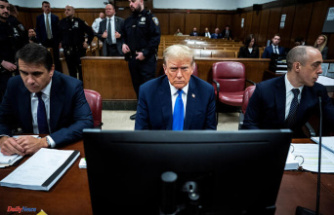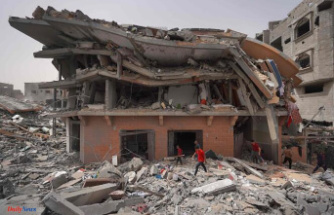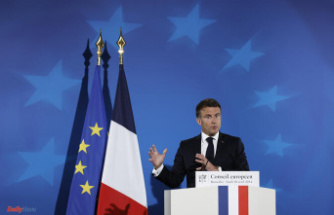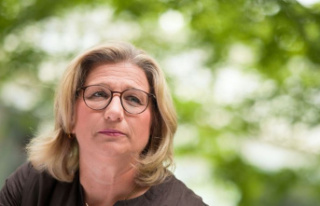The decision was eagerly awaited. She is striking. This Tuesday, June 21, the Council of State, the highest administrative court in the country, confirmed the suspension of the internal regulations of the swimming pools of Grenoble authorizing the wearing of the burkini, decided by the administrative court. In his decision, the judge in chambers of the Council of State thus considers that the town hall of Isère did not have the right to take such a decision because it "undermines the principle of neutrality of public services". For Gilles Clavreul, prefect and co-founder of the Printemps Républicain, this a priori surprising choice is based less on the question of the burkini than on an editorial weakness in the regulations, and must be exercised with caution.
L'Express: In August 2016, the Council of State ruled against the "anti-burkini" decree of Villeneuve-Loubet (Alpes-Maritimes), specifying in particular that "the disputed decree (...) a serious and manifestly illegal attack on the fundamental freedoms of freedom to come and go, freedom of conscience and personal freedom". How can this reversal of case law be explained today?
Gilles Clavreul: What is important to remember in this decision is the fact that it relates to an editorial weakness in the rules of the Grenoble swimming pool, and not to the burkini itself. In this text, the municipality authorized the burkini provided that it was glued to the body, but at the same time prohibited outfits that were not close to the body, longer than mid-thigh. The Council of State therefore considered that authorizing the burkini as an exception and not long shorts for men creates inequality between citizens, and thus contravenes the neutrality of the public service. This indirect discrimination justifies for the Council of State the suspension of the regulation.
Will this decision prevent other municipalities from authorizing the wearing of the burkini?
Even if it is undoubtedly a strong decision on the political level, which responds to a gesture itself political on the part of the mayor Eric Piolle, I remain cautious on the follow-up. For now, this decision does not mean that the burkini match is over. In the future, if covering outfits are authorized in the rules without any other mention and there is no derogation, then the argument which motivated the suspension, the breaking of a tie, no longer exists . As long as equal treatment between citizens is ensured, then we can assume that a city will be able to authorize the holding. There will remain the argument of hygiene and safety, but we know that it is more fragile: the Defender of Rights had questioned it in 2018, for example.
Can we conclude that the judges have hardened their position on the question of secularism?
It is indisputable that the Council of State has evolved. He could indeed have adopted the same reasoning as in 2016, considering that there is no disturbance of public order in this case, and that freedom of expression must prevail. One would have thought that the Council would have been, as it often is in matters of secularism, liberal. However, talking about hardening seems strong to me. The term "inflection" is more appropriate, because the Council of State remains very balanced in its decision. It is not on the ground of secularism strictly speaking, but speaks well of "breaking equality".
Would this decision have been possible without the law against separatism passed in August 2021, which allows prefects to refer to administrative judges acts which would "seriously undermine the principles of secularism and neutrality of public services"?
Indeed, I see a number of jurists who say that this decision would not have been possible in the absence of this law. I only half agree. At the time of Dieudonné, for example, prefectural referrals about his show had already been taken, because the summary procedure is possible - not only on the initiative of the prefect - to prevent any "serious and manifestly illegal attack" to a fundamental freedom. However, it can be said that the law against separatism has caused a change of mindset. The Council of State is always attentive to the intentions of the legislator, and insofar as this law is recent and its purpose is to prevent situations which would jeopardize the "minimum requirements of life in society", we can assumption that he took it into account in his decision.
Could the European Court of Human Rights (ECHR) condemn France for this decision?
This seems unlikely to me, insofar as the ECHR leaves a significant margin of appreciation to the States to implement the main principles of the Convention, such as religious freedom. There has never been a clear overhang between the ECHR and national laws or French case law. On the contrary: during the law banning the burqa in 2010, the ECHR absolutely did not censor it.












